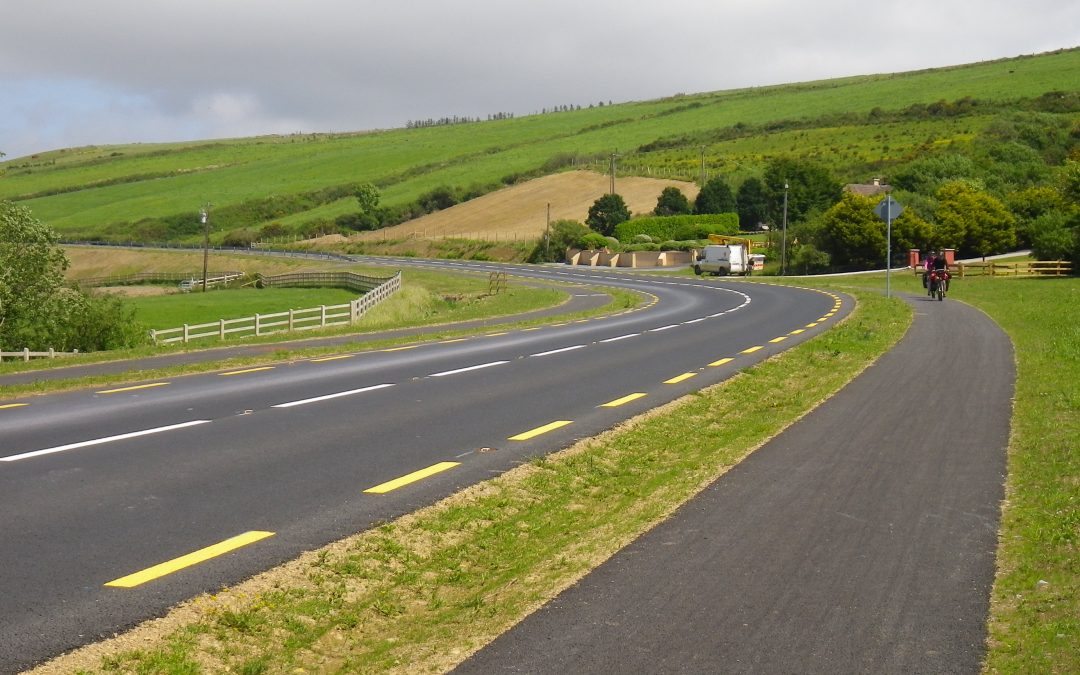This is a problem faced routinely by landowners in Ireland. The local authority applies to acquire your land, either voluntarily or through compulsory purchase order, to widen a road. It can be the cause of some understandable stress and worry, as the application arrives out of the blue and is written in intimidating jargon.
However, once you receive proper and professional advice and direction, there is no need to panic. These applications can be resolved amicably, and the property owner can receive fair and just compensation for his or her acquired land. For those of you in this situation, find below some friendly and essential professional advice on how to proceed. However, firstly, let us examine the circumstances under which local authorities decide to widen roads.
Local authorities continuously monitor accident statistics for roads under their control. When they identify an area with a high propensity for road traffic accidents, they typically propose a variety of road-improvements aimed at addressing the worrying finding. Typical road-improvements, in these circumstances, could include everything from the repositioning of junctions to the improvement of sight-lines, many of which necessitate land acquisition.
Other developmental objectives, such as reducing traffic congestion and improving inter-city connectivity, may also require the acquisition of land. In these cases, larger and more substantial road infrastructure projects are required and funding through Transport Infrastructure Ireland (TII) is sought. These may include the creation of a town bypass, the introduction of a road widening scheme, or the creation of an entirely new road corridor.
Now, for that all important question: If the council attempt to acquire my land, how do I proceed so I get all my entitlements and my rights are respected?
Your first step should be the following: when your lands are required for road improvement (or for road construction) engage immediately with the local authority. Early engagement is vital! It offers you an opportunity to fully understand the proposal, and to take measures to limit the impact the proposal has on your property and land holding.
How you proceed, will partially depend on what kind of scheme the local authority is proposing. For small schemes, local authorities typically acquire land through voluntary agreement. While in the case of larger schemes, compulsory purchase order (CPO) is, at least initially, the favoured route. Once the local authority have decided on their course of action, property owners should do the following: seek out a suitably qualified professional to deal with both the negotiation of accommodation works and with the negotiations of the compensation settlement.
What is ‘accommodation works’? Accommodation works are the measures and works taken by a local authority to mitigate the adverse effects a scheme could or would have on a property owner. Accommodation works will always be determined by circumstances and the individual case. For farmers who find their land required, accommodation works could include the construction of an underpass or the providing of stock pins. For owners who find their family home adversely affected, mitigating measures could include reinstating a boundary wall, hedging or the provision of a soft landscaping allowance.
When it comes to the rewarding of compensation, compensation is typically allowed under the following three headings a) the value of the land taken b) the disturbance caused to the lands by the scheme and c) the effect of the severance on the retained lands (including ‘injurious affection’). Severance and injurious affection are deduced by calculating the loss of value to the retained lands caused by the land acquired. This figure (the cost of severance and injurious affection) is then added to the other heads of claim to give a total claim sum.
In summary, when faced with the prospect of a road widening scheme, take the following two essential steps; 1) engage as early as possible with the local authority, and 2) appoint an agent experienced in dealing with land acquisition claims to represent your interests.










